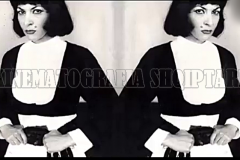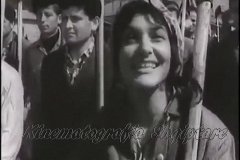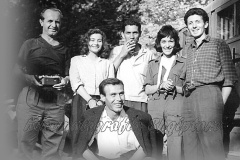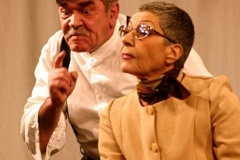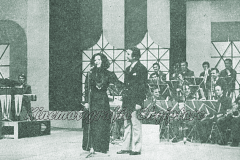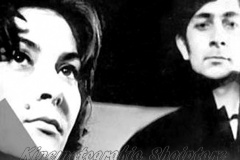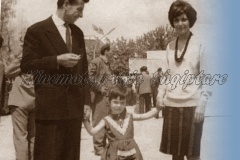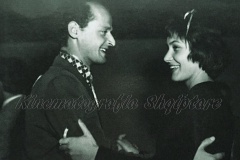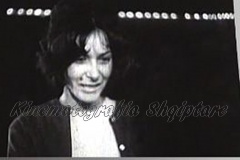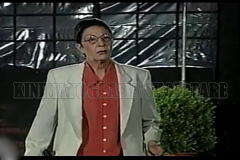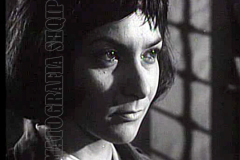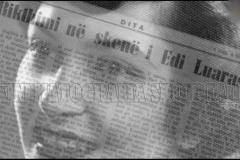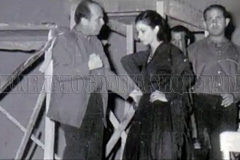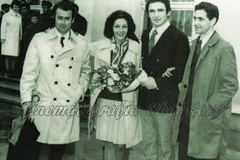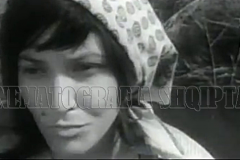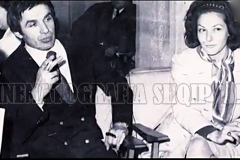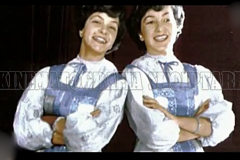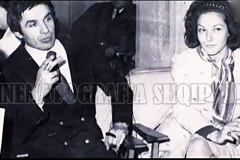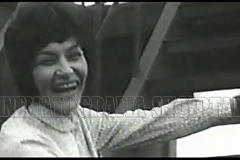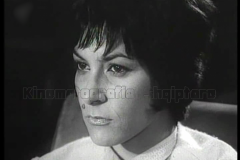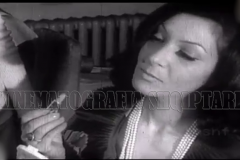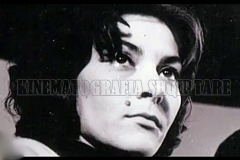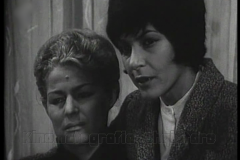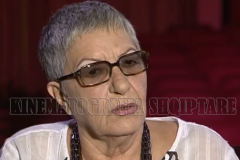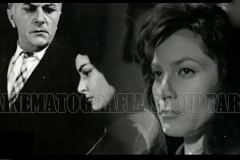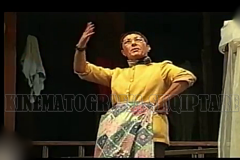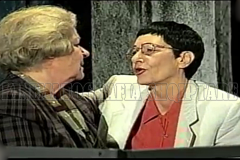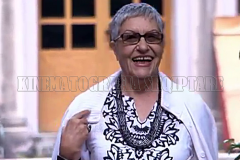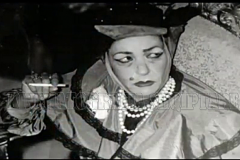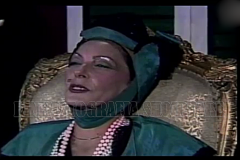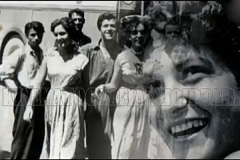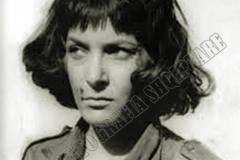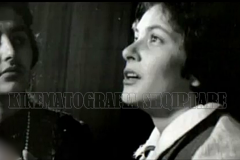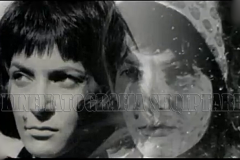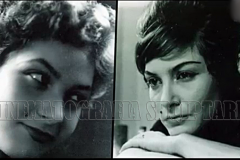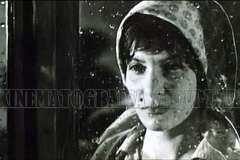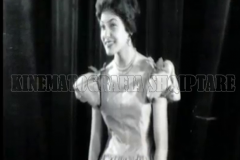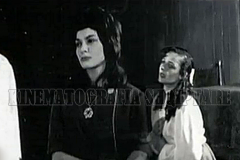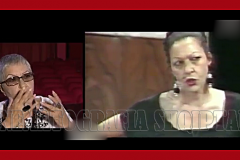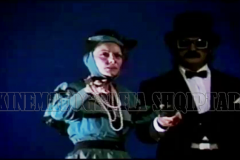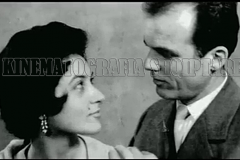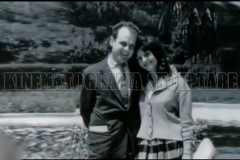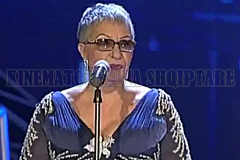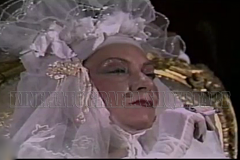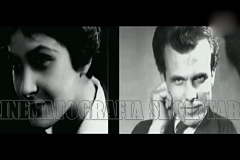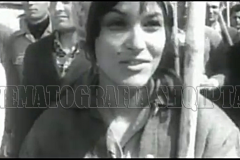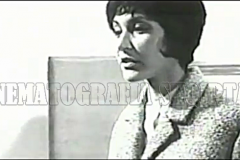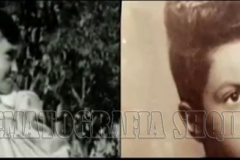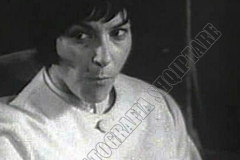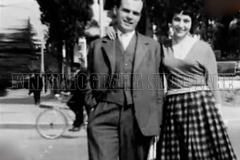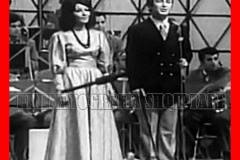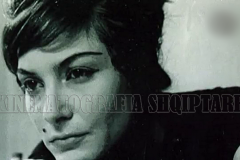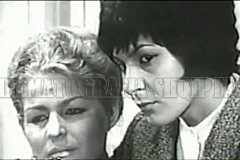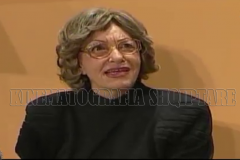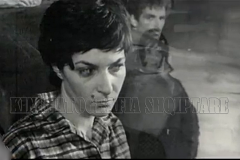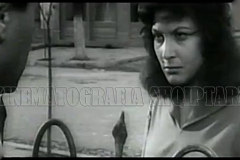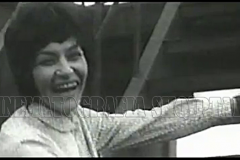Edi Luarasi
Albanian theater and cinematographer.
“Honored Artist”. Holds the “Naim Frashëri” medal. Also in the drama “Njollat e Murrme”, she was awarded a Gold Medal for the interpretation of the main role Lea.
She was born in Tirana on May 7, 1940 to intellectual parents. His father, Ndoc Mirdita, had completed a high military school in Austria. Colonel in the royal army, even afterwards, until the end of the war. Ed’s mother, Cezarina Laca, teacher, student of Fishta and Anton Harapi. Strict but fair woman, dedicated to education, where she worked until she retired. The beautiful girl of the 60s-70s, well-known singer, stage and film actress, presenter of the 11th RTSH festival, seventh category seamstress, is a real challenge, like herself.
 To mention in the first place, that Edi Luarasi is one of the Mirdita sisters, known in the second half of the 50s, in the interpretation of light songs on the Soldier’s Estrada and later on the State Estrada. At the age of 18, she started her career as a singer. At the same time, taking part in various skits, she wakes up in himself and, so to speak, discovers the theater without hesitation. This is how she would rank among the students of the second drama class, near the High Institute of Arts in Tirana. “Much Ado About Nothing” with which she received her diploma, clearly demonstrating her talent, reaped her first real success on stage.
To mention in the first place, that Edi Luarasi is one of the Mirdita sisters, known in the second half of the 50s, in the interpretation of light songs on the Soldier’s Estrada and later on the State Estrada. At the age of 18, she started her career as a singer. At the same time, taking part in various skits, she wakes up in himself and, so to speak, discovers the theater without hesitation. This is how she would rank among the students of the second drama class, near the High Institute of Arts in Tirana. “Much Ado About Nothing” with which she received her diploma, clearly demonstrating her talent, reaped her first real success on stage.
This is exactly where that rich artistic career will begin, where, as an actress at the People’s Theater, she played more than 30 roles… “Kordelia”, “King Lear”, “Cuca e Maleve”, “Crossroads”, “House on the boulevard”, “Doctor Alexi”, “Shkurte Pal Vata” …. etc.
In these roles, as well as in the three films he played in, “The first years”, “Traces”, and “Death’s death”, Edi was always presented with artistic dignity, distinguished by his strong and slightly rebellious temperament, intuition and artistic imagination as and to a fallen spiritual world.
Among her highlights as an actress, we mention the role of Lea in the drama “Njolla te murme” (1969) by Minush Jeros directed by Mihallaq Luarasi, given on the occasion of the Fourth National Festival of Drama Theaters by the troupe “А. Mr. Çajupi” of Korça. The result was well-deserved, the central jury gave the flag to the theater “Andron Zako Çajupi” of Korça for the best show of this festival “Njollat e murme” by Minush Jero, for the direction it gives the Medal of the Festival of the first degree to the director Mihal Luarasi, Edi’s husband, for staging the play “Njolla te Murme” with a high ideo-artistic level, and finally, he awarded the medal of the first degree to the actress Edi Luarasi, for the interpretation with a high ideo-artistic level of the role of Lea. Before this joy was over, after three very successful performances, this drama, to which the mass of the people had paid a great deal of attention, was described as a “Black stain on our revolutionary art full of partisanship”. It was banned categorically.
The truth was that for the assessment of the work there were two commissions (one was legal). – The first was that of artists, writers, critics – including Prof. Dr. Koço Bihiku, and finally the public, which night after night flocked to the door of the Theater to see this show that caused a sensation for the ensemble of values. The second (illegal) commission, composed of incompetents, who contributed day by day to the connection with ideological and political chains of our art, under the guise of the method of socialist realism, called it “a work with a loose subject”, or a work “where the author posed the problem with a subject woven with stunts and effects that objectively aim to capture the minds of the spectators”…
This is how the entire contradictory press reflected itself. The trauma of the Luarasi family is connected precisely with the banning and censorship of this drama, as well as the bad luck of the 11th Song Festival on Television. Ed’s husband, the talented director Mihallaq Luarasi, goes to prison and is sentenced to 8 years for agitation and propaganda! Meanwhile, Edi, expelled from the theater, is forced to work as a seamstress to cope with financial difficulties. During the 11 years of working as a seamstress, she manages to master the craft well. People loved her but she loved them too, always frank, loving and without words…
But these words fell on deaf ears, they were not worth it the desire of this simple man, before the prejudices of higher authorities… Forced by his mother’s illness, Edi quits his job and thus the Luarasi family was supported only by the salary of Mihallaq, who in the meantime had started working as a painter. They hoped that a white day would come for them as well….
At 51 years old, after the advent of democracy, Edi Luarasi returns to the scene. A little difficult for her, after 20 years of separation, however with inexhaustible courage and passion, she manages to win and deserve the applause of the public in the drama “Visit of the Old Lady”, thus returning triumphantly to the stage she loved so much in love.
Edi Luarasi passed away on December 3, 2021.
Previously published on the page “Albanian Cinema”, Facebook May 2015 and revised in the following years.
_____________________
Reference: Selection of information about the actress online from various newspaper articles and Albanian forums, as well as interviews with the actress herself. The photos are the contribution of the administrator.
Follow us: Blog: https://albaniancinematography.blogspot.com/ Vimeo: Albanian Cinematography (vimeo.com) Facebook: https://www.facebook.com/ksh.faqjazyrtare Dailymotion: https://www.dailymotion.com/kinetografiashqiptareartisporti YouTube: https://www.youtube.com/channel/UCDRYQ5xCyGkfELm3mX8Rhtw
Discover more from Albanian Cinematography - Sport
Subscribe to get the latest posts sent to your email.

